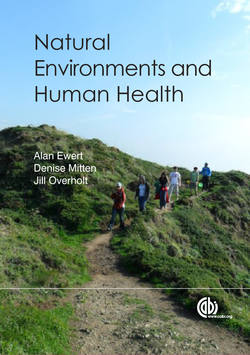Читать книгу Natural Environments and Human Health - Alan W Ewert - Страница 36
На сайте Литреса книга снята с продажи.
The Advent of Modern Medicine and New Therapies
ОглавлениеFrom our earliest days, humans relied on observation, experience, intuition, and indigenous consciousness to inform knowledge and understanding of the natural world, including the healing effect of the natural environment. Transitioning to the 15th century, the cure of the body and the care of the soul were separated and hospitals were now built as separate structures established by individual merchants or guilds (Elmer, 2004).
The term science (from Latin scientia, meaning ‘knowledge’) as a body of knowledge about the natural world encompassing empirical, theoretical, and practical knowledge has been around since the 17th century. The term scientist is relatively new; before the 19th century people investigating nature were called natural philosophers. This is because they were trying ‘to find natural, rather than supernatural explanations for natural processes’ (Gaarder, 1995, p. 27). Today, most science historians consider nature inquiries to be rigorous and adequate science, even those done before the scientific revolution of the 16th and 17th centuries (Hendrix, 2011). The importance of the scientific revolution is that science began to be shaped as an alternative to the Western religion, with religion having the moral realm and science the factual realm for questions in life. Over time the use of nature in healing became less and less.
Science, in terms of facts, grew to be known as a marker for the progress of human civilization. The more facts we know the more progress we have made. Natural philosophers or scientists used observation, explanation, and prediction to help explain the natural world and human interactions with it. Using the definition of science to be ‘the ordered knowledge of natural phenomena and the relations between them’, it is easy to see science as a thread in humans’ existence well before the 17th century. People have used some sense of ordered knowledge of the Earth and universe, including the Earth’s cycles, for millennia as they derived health benefits from nature. The positivist phase (mid-1800s)—where the philosophy of science was positivism, or a sense that the only truth is the truth in scientific knowledge with narrowly defined methodologies—helped science become even more reductionist and removed from common life. Positivists believed that metaphysical knowledge from theology, in addition to lesser known forms of knowledge generation, were not valid. Adding another layer of complication, science was seen as the mechanism by which nature and natural processes could be predicted and controlled. This gross generalization of the epistemology of truth, or way of knowing, perpetuated a separation from nature. The fact is, however, that many modern-day negative stereotypes of science as being cut-and-dried knowledge of only what we can measure were not valid for early scientists (pre-1800s) and are not valid for many scientists today.
In the Greek civilization the natural philosophers within the church who used the natural sciences to determine how to cure illnesses were called temple healers, while those moving towards what is now called a profession might be called physicians. This split between spirituality and science may symbolize and embody the split between healing and curing, another misfortunate consequence of using science to predict and control. As science with the purpose to control and the domination of nature continued, a prevailing thought was that we could find cures for illnesses using nature or natural material. The concept of cure comes from a mechanistic view certainly put forth by Aristotle, including deductive reasoning and empiricism or the notion that truths can be arrived at through observation and induction. For example, understanding that amber is fossilized resin from pine trees can be deduced from seeing samples with trapped insects within them. This building block conceptualization was fixed during the Cartesian period and is with Western societies today. As we conceive of a more holistic view of science using systems theory and realize the ubiquitous nature of natural philosophy, we see science as a useful part of a paradigm.
Paracelsus was a Swiss-German physician and botanist in the early 16th century who incorporated cosmos, spiritual influences, and chemistry in his medical practice. He was a practicing astrologist as many physicians of the time were, though he rejected the popular so-called magical beliefs of the time. His medical views were different from his peers’ because he felt that a person’s health depended on the harmony of the person (microcosm) and nature (macrocosm). In this manner his views were more like Chinese medicine; however, they were also different in that he was only concerned with the physical body. He used material from nature for cures but mainly relied on what he referred to as balancing minerals in a body.
